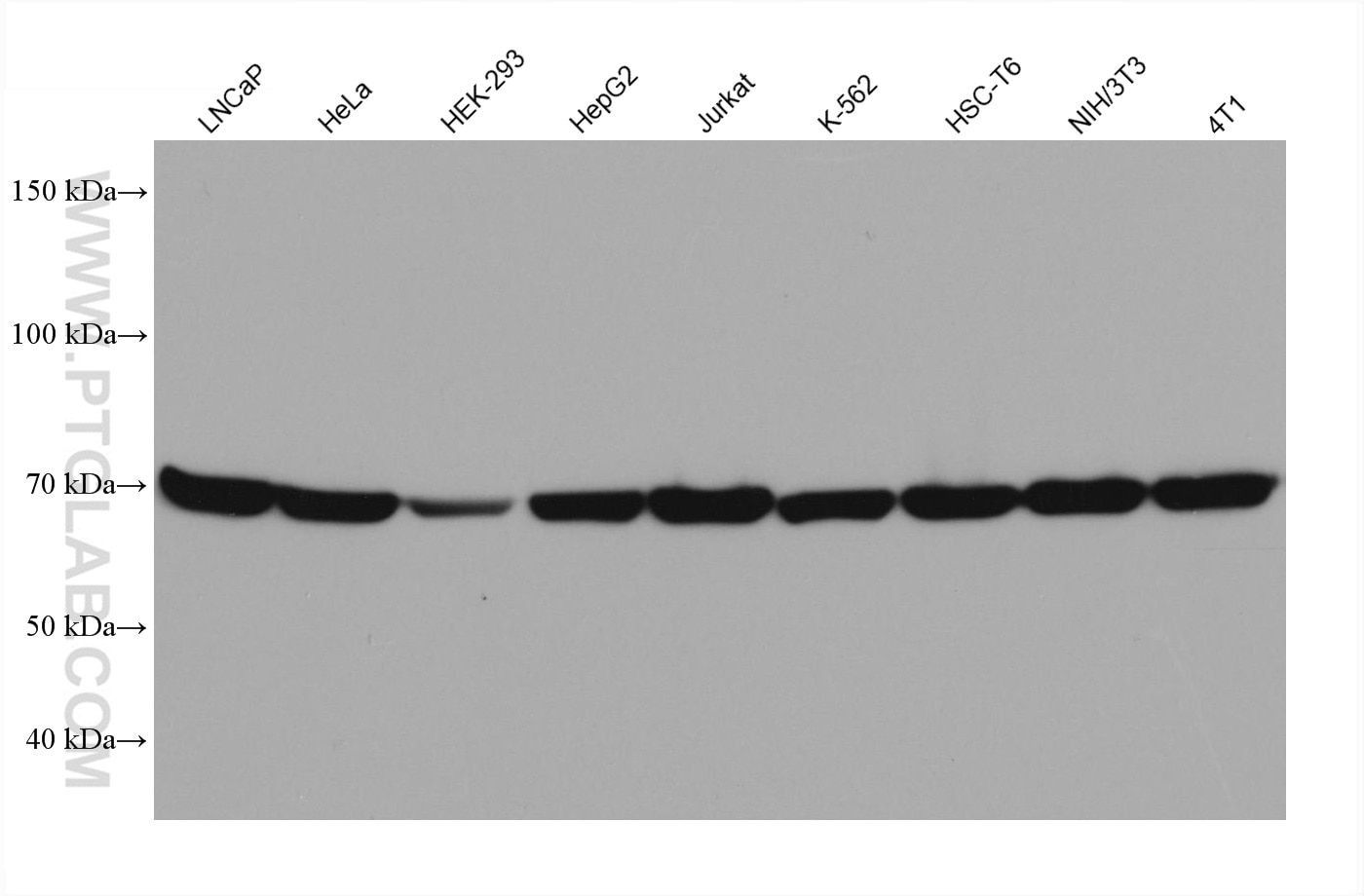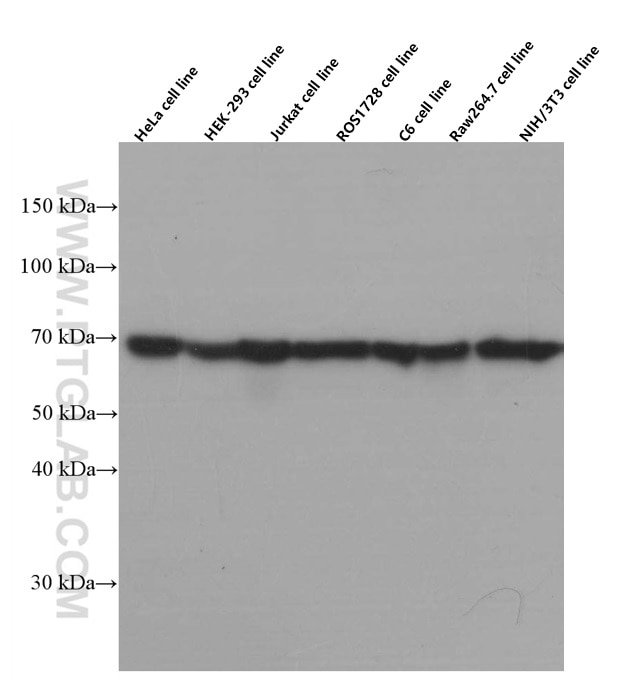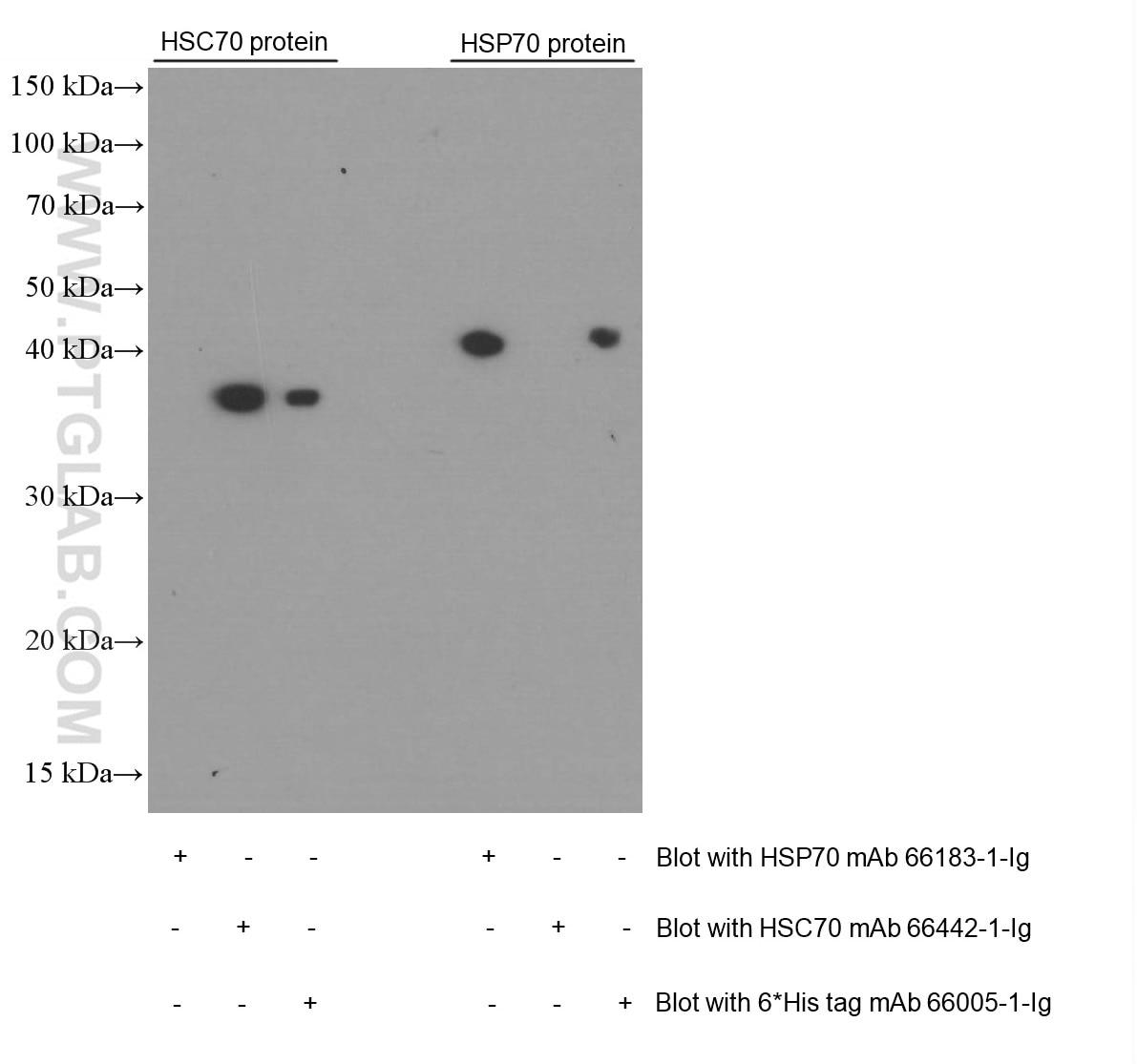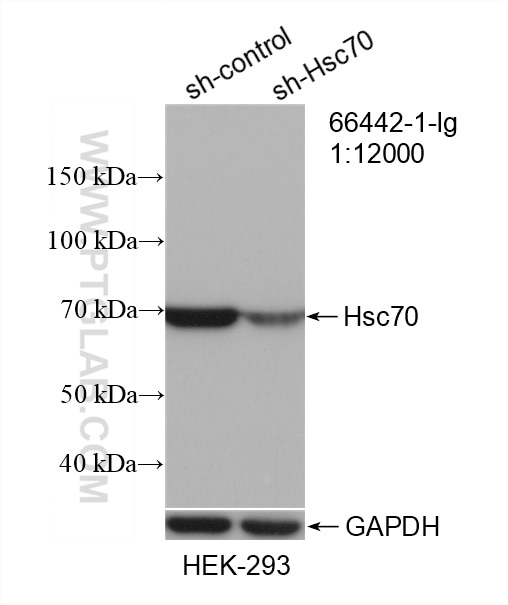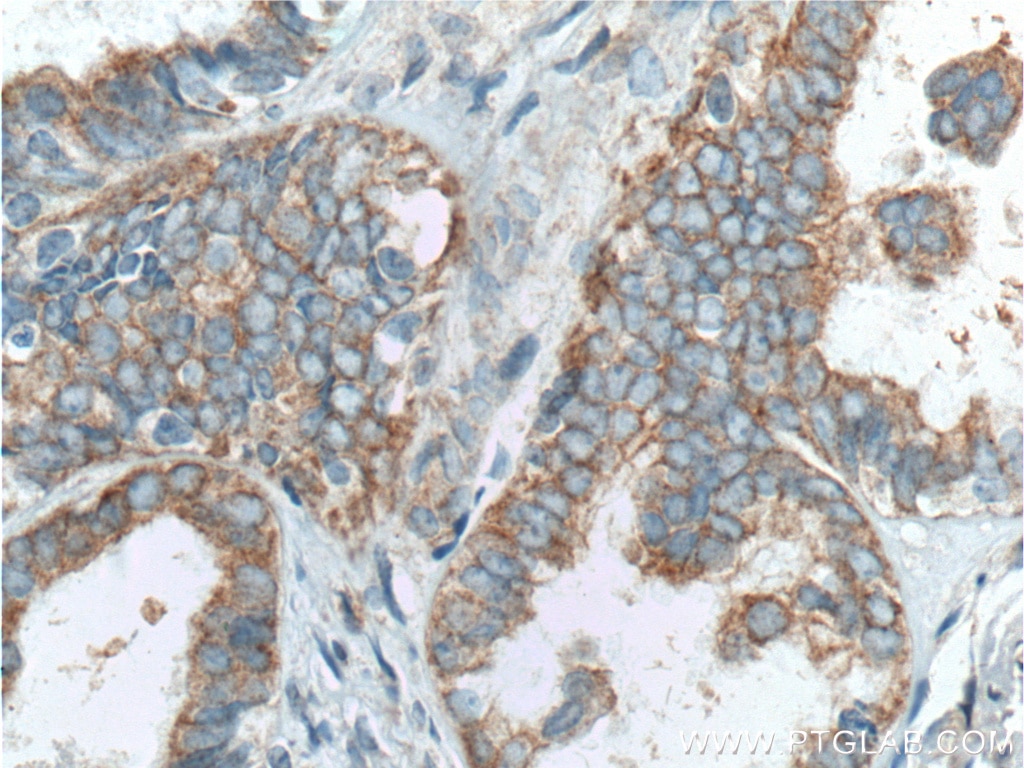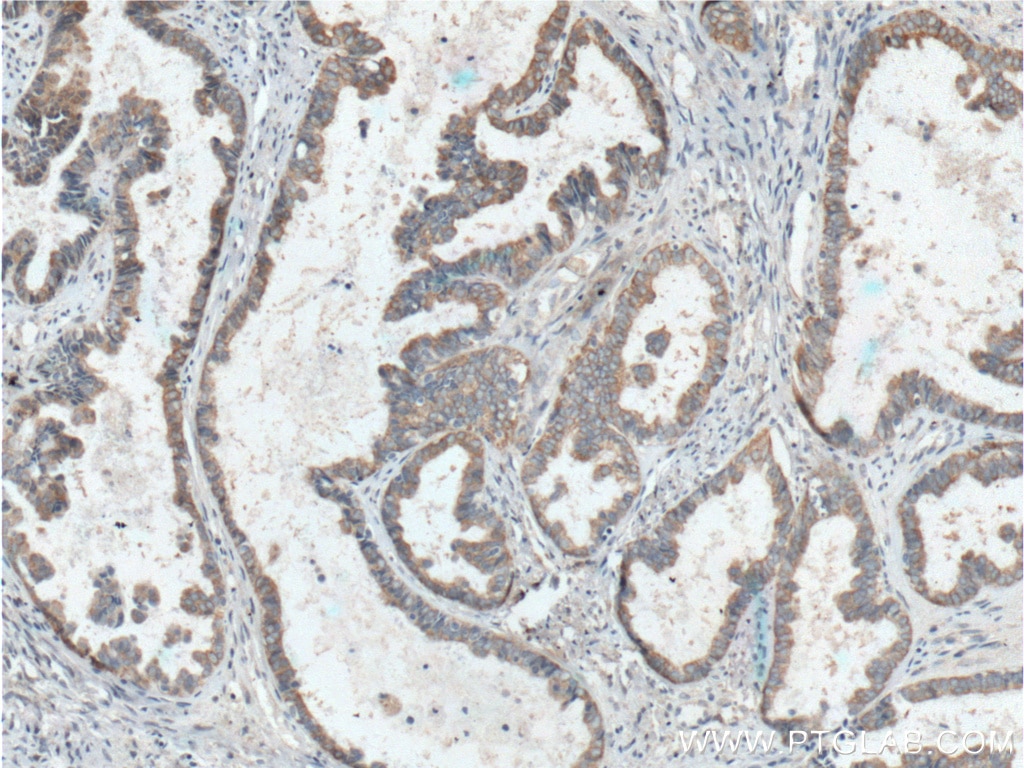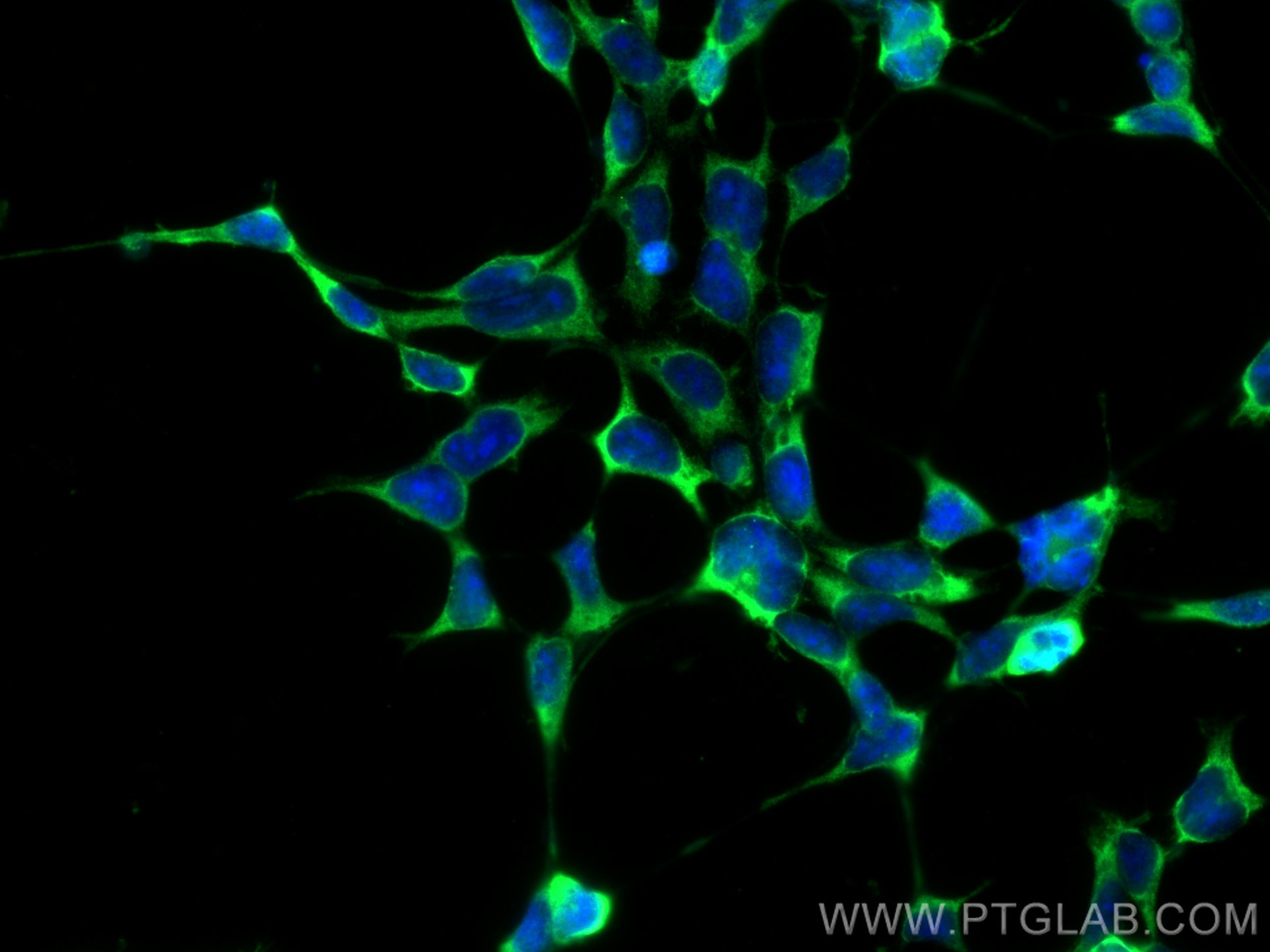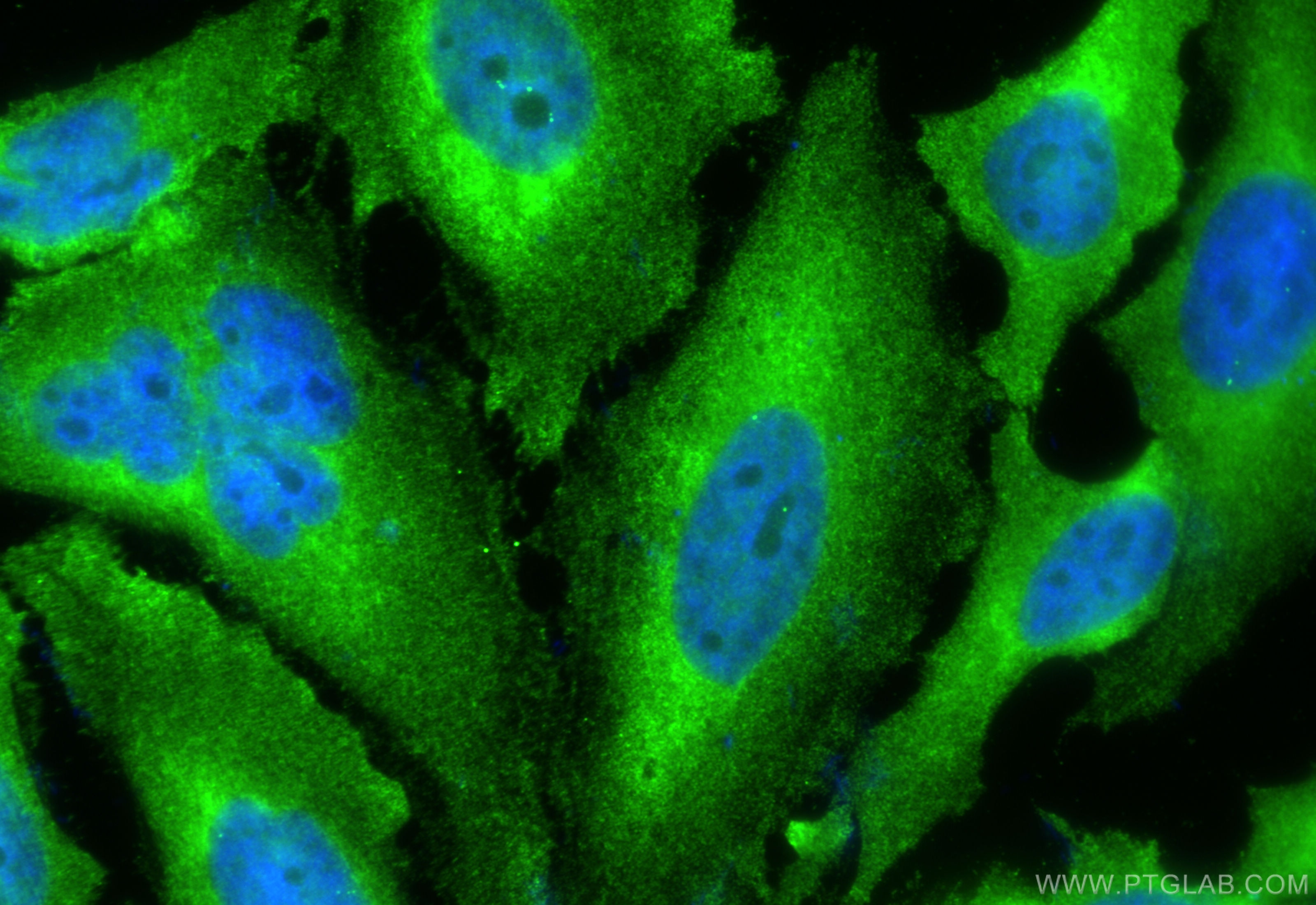Tested Applications
| Positive WB detected in | LNCaP cells, HeLa cells, Recombinant protein, HEK-293 cells, Jurkat cells, ROS1728 cells, C6 cells, RAW 264.7 cells, NIH/3T3 cells, HepG2 cells, K-562 cells, HSC-T6 cells, 4T1 cells |
| Positive IHC detected in | human ovary tumor tissue Note: suggested antigen retrieval with TE buffer pH 9.0; (*) Alternatively, antigen retrieval may be performed with citrate buffer pH 6.0 |
| Positive IF/ICC detected in | HeLa cells, HEK-293 cells |
Recommended dilution
| Application | Dilution |
|---|---|
| Western Blot (WB) | WB : 1:20000-1:100000 |
| Immunohistochemistry (IHC) | IHC : 1:50-1:500 |
| Immunofluorescence (IF)/ICC | IF/ICC : 1:200-1:800 |
| It is recommended that this reagent should be titrated in each testing system to obtain optimal results. | |
| Sample-dependent, Check data in validation data gallery. | |
Published Applications
| WB | See 9 publications below |
| IF | See 3 publications below |
Product Information
66442-1-Ig targets Hsc70 in WB, IHC, IF/ICC, ELISA applications and shows reactivity with human, mouse, rat samples.
| Tested Reactivity | human, mouse, rat |
| Cited Reactivity | human, mouse, pig, monkey, goat |
| Host / Isotype | Mouse / IgG1 |
| Class | Monoclonal |
| Type | Antibody |
| Immunogen |
CatNo: Ag17910 Product name: Recombinant human Hsc70 protein Source: e coli.-derived, PET28a Tag: 6*His Domain: 288-587 aa of BC007276 Sequence: QKLLQDFFNGKELNKSINPDEAVAYGAAVQAAILSGDKSENVQDLLLLDVTPLSLGIETAGGVMTVLIKRNTTIPTKQTQTFTTYSDNQPGVLIQVYEGERAMTKDNNLLGKFELTGIPPAPRGVPQIEVTFDIDANGILNVSAVDKSTGKENKITITNDKGRLSKEDIERMVQEAEKYKAEDEKQRDKVSSKNSLESYAFNMKATVEDEKLQGKINDEDKQKILDKCNEIINWLDKNQTAEKEEFEHQQKELEKVCNPIITKLYQSAGGMPGGMPGGFPGGGAPPSGGASSGPTIEEVD Predict reactive species |
| Full Name | heat shock 70kDa protein 8 |
| Calculated Molecular Weight | 70 kDa |
| Observed Molecular Weight | 70 kDa |
| GenBank Accession Number | BC007276 |
| Gene Symbol | HSC70 |
| Gene ID (NCBI) | 3312 |
| RRID | AB_2881812 |
| Conjugate | Unconjugated |
| Form | Liquid |
| Purification Method | Protein G purification |
| UNIPROT ID | P11142 |
| Storage Buffer | PBS with 0.02% sodium azide and 50% glycerol, pH 7.3. |
| Storage Conditions | Store at -20°C. Stable for one year after shipment. Aliquoting is unnecessary for -20oC storage. 20ul sizes contain 0.1% BSA. |
Background Information
HSPA8 (also known as HSC70) is a member of the HSPA (HSP70) family of heat-shock proteins which are highly conserved chaperons implicated in protein folding, protein refolding, protein transport, and protein targeting. HSPA8 is a constitutively expressed cytosol/nuclear protein able to translocate between cytoplasm and nucleus. Recently it has been reported that HSPA8 can interact with α-synuclein, the critical pathological protein of Parkinson's disease, indicating its implication in neurodegenerative disease. (PMID: 21832061)
Protocols
| Product Specific Protocols | |
|---|---|
| IF protocol for Hsc70 antibody 66442-1-Ig | Download protocol |
| IHC protocol for Hsc70 antibody 66442-1-Ig | Download protocol |
| WB protocol for Hsc70 antibody 66442-1-Ig | Download protocol |
| Standard Protocols | |
|---|---|
| Click here to view our Standard Protocols |
Publications
| Species | Application | Title |
|---|---|---|
J Neuroinflammation p38-TFEB pathways promote microglia activation through inhibiting CMA-mediated NLRP3 degradation in Parkinson's disease. | ||
Microbiol Spectr Heat Shock Protein Member 8 (HSPA8) Is Involved in Porcine Reproductive and Respiratory Syndrome Virus Attachment and Internalization. | ||
Cell Commun Signal Discovery of LAMP-2A as potential biomarkers for glioblastoma development by modulating apoptosis through N-CoR degradation. | ||
J Virol Heat shock protein A1 inhibits the replication of foot-and-mouth disease virus by degrading viral RNA polymerase 3D through chaperone-mediated autophagy | ||
FEBS Open Bio A curcumin analogue GO-Y030 depletes cancer stem cells by inhibiting the interaction between the HSP70/HSP40 complex and its substrates | ||
EMBO Rep HSC70 coordinates COP9 signalosome and SCF ubiquitin ligase activity to enable a prompt stress response |

